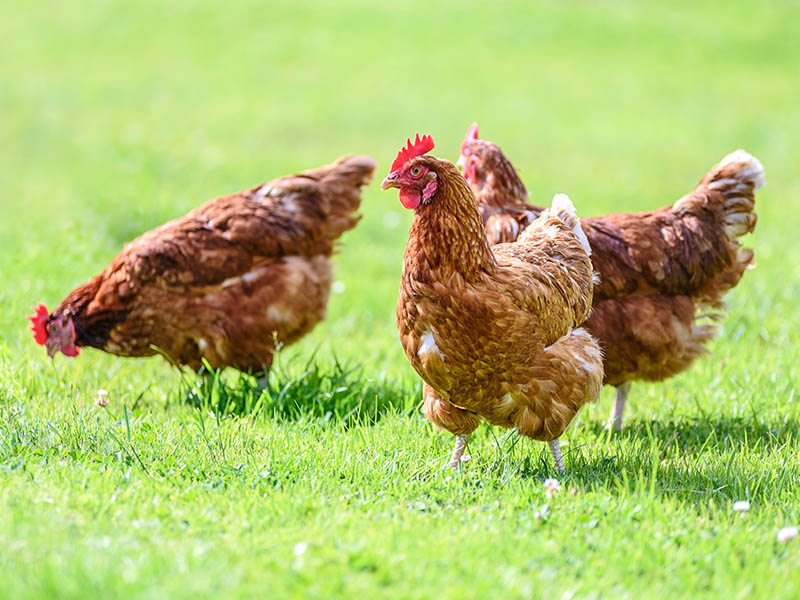
Agricultural News
OSU Researcher Studying Gut Bacteria to Improve Disease Resistance in Chickens
Thu, 20 Oct 2022 13:34:38 CDT
 An Oklahoma State University researcher is trying to find the cure for a poultry disease that costs the industry $6 billion per year.
An Oklahoma State University researcher is trying to find the cure for a poultry disease that costs the industry $6 billion per year.
Necrotic enteritis is a disease that causes severe intestinal lesions, growth retardation and low mortality to poultry, according to Glenn Zhang, OSU professor of animal and food sciences. Zhang said there has been a significant increase in the prevalence of the disease worldwide following the industry banning the use of antibiotics because the drugs can be passed along to people, causing an immunity to antibiotic medications.
With antibiotics no longer a factor, it is important to find alternatives that will combat the disease, Zhang said, and solving the problem starts with genetics.
“For this project, we are trying to identify specific microbes and metabolites associated with resistance to necrotic enteritis in chickens,” he said. “We know there are certain breeds of chickens that are naturally resistant to infections, while there are other genetically related breeds that are relatively susceptible. I am searching for the differences in the composition and function of the gut bacteria among different breeds of chickens when it comes to infection.”
The $300,000 project, funded by the National Institute of Food and Agriculture, is a collaborative project among OSU, Iowa State University and the U.S. Department of Agriculture’s Agricultural Research Service in East Lansing, Michigan.
Zhang’s team has conducted animal trials and is in the process of using a combination of metagenomics and metabolomics technologies to identify the bacteria and their metabolites in resistant chicken breeds. Once they are identified, the next phase of research is to introduce them into susceptible and commercial breeds of chickens to prove the hypothesis that it is this bacteria and their metabolites that are responsible for disease resistance.
"It will be a dream come true for me if we can develop these gut bacteria or metabolites as alternatives to antibiotics for growth promotion and disease resistance,” Zhang said.
This material is based upon work supported by the Foundational and Applied Science Program under award number 2022-67016-37208 for $300,000 from the USDA National Institute of Food and Agriculture. Any opinions, findings, conclusions or recommendations expressed in this publication are those of the author(s) and do not necessarily reflect the view of the U.S. Department of Agriculture.
OSU Ag Research is Oklahoma's premier research and technology development agency in agriculture, natural resources and the life sciences.
WebReadyTM Powered by WireReady® NSI
Top Agricultural News
More Headlines...





